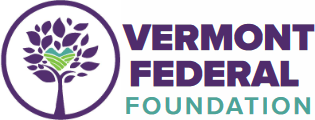You have fond memories of your college alma mater. Sporting events, ski weekends, late-night sessions at the library, and a steady diet of packaged noodles. While most students do what they can to save on college expenses, nearly 65% of graduating seniors finish their education with an average debt of $29,000.
So, it’s no surprise that money management fundamentals, such as contributing to a 401(k) retirement plan or building a six-month emergency fund account, become low priorities. But, the earlier you start saving for the future, the less you’ll need to save. Think compound interest.
Take these steps to pay off student loans early so you’ll have more time and funds to build a solid financial foundation. Don’t worry. Not one tip requires a second job or encourages you to live on microwave meals.
Know What You Owe
Before you can tackle student loan debt, understand exactly what you owe and to whom. Contact your student loan servicer and confirm:
- Type of loan, e.g., Federal Student Loan or Private Student Loan
- Outstanding balance as of today
- Current interest rate and type, e.g., fixed or variable
- Repayment schedule, i.e., Maximum number of years to repay the loan
- Minimum required payment
Student loan servicers can also let you know about special repayment programs that can help reduce the cost of borrowing. Some may offer interest rate reduction incentives for automatic electronic payments.
Make Biweekly Loan Payments
Splitting your regular payment in two, while ensuring the total minimum monthly payment arrives by the due date, can bring your student loan balance to zero in a hurry. This strategy works by applying more of the payment to the principal and also guarantees a full extra payment each year. Enter your loan information into a biweekly payment calculator to see how much interest you’ll save and how many years you can trim off your repayment schedule.
Revisit Your Budget
Your budget is key to paying off student loans early. Reducing expenses by just $100 a month and applying those extra funds to the loan principal can shave years and $1000s off your loan debt. Use a student loan payoff calculator to figure how much you can save when eliminating unnecessary expenses. Apply those dollars to your student loan debt. Apply extra funds to your smallest loan balance first to experience a quick win.
Refinance Your Loans
You might be able to pay off multiple student loans with one new loan at a lower interest rate. A student loan refinance doesn’t erase the debt but allows you to consolidate federal and private student loans into one loan resulting in a smaller minimum required payment. If you continue paying your original payment amount to the new loan, even though the payment is less, the difference gets applied to the principal balance. The more money applied to the underlying balance, the sooner you’ll be free of student loan debt.
Eligible borrowers can use Vermont Federal Credit Union’s Student Loan Refinance program to refinance and consolidate up to $50,000 in student loans*. Sign up for automatic electronic payments from your credit union account to receive a 0.25% rate discount.
Apply online today and take the first step toward simplifying your finances and reducing your monthly payments. If you have questions or need guidance at any point, our team is here to support you every step of the way!
*If you consolidate Federal Student Loans with private loans, you will lose any benefits provided under the Federal Student Aid loan program. Loan is subject to credit approval.








